At GreenEnv Agribusiness, Fr. Conteh who is the CEO of the company aims to create an eco-friendly initiative that improves the ecosystem, one that creates decent jobs for rural women and youths, and one that creates food sustainability through an orchard-driven initiative.
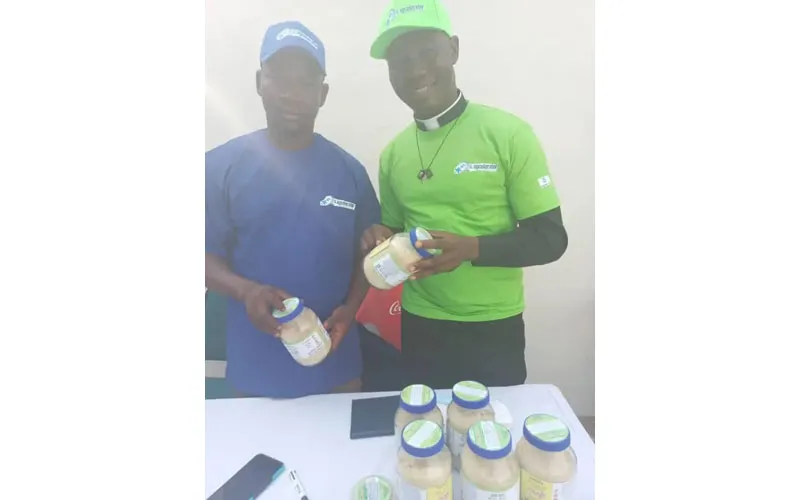 Credit: Fr. Michael Baimba Conteh
Credit: Fr. Michael Baimba Conteh
The company has cultivated 80 acres of ginger and 45 acres of cassava and planted thousands of fruit trees including coconuts, avocado, pear, tamarind, orange, grapefruits, lime, cashew, mango, and bitter kola trees.
This way, Fr. Conteh’s initiative is creating a viable green orchard environment that has also started to support beekeeping initiatives.
The initiative is also aimed at creating awareness of the need to protect the environment and stop rampant deforestation in northern Sierra Leone.
(Story continues below)
“There is too much deforestation in the northern part of Sierra Leone,” the Catholic Priest says, and adds, “Farming is no longer attractive because of the exploitation of middlemen and the lack of markets for the perishable farm products, and the people have turned to cutting down trees. That is why we are pushing for an orchard-driven initiative. We also realized that ginger does very well under trees.”
The company’s present traction is the establishment of a ginger and cassava processing factory and a bakery located at Kamabai, the headquarters town of Biriwa Limba Chiefdom, North of Sierra Leone. These facilities are now equipped with key ginger, cassava, and bread processing line machines through grant help from GIZ, World Bank, SL-Agcelerator, Cordaid, AIDE, and Capitol Foods.
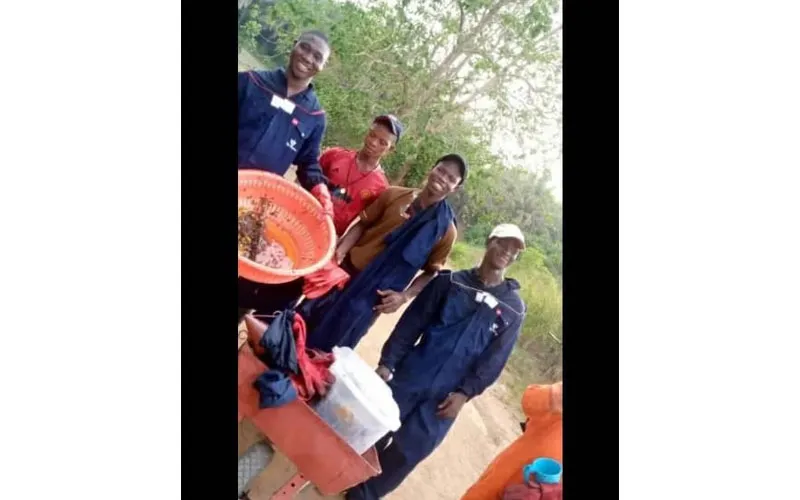 Credit: Fr. Michael Baimba Conteh
Credit: Fr. Michael Baimba Conteh
The company buys raw ginger and cassava tubers from farmers at a fair price and processes the produce into cost-effective and smartly packaged ginger and cassava products.
Processed products include ginger powder, ginger tea, seasoning, spice, cassava flour, ginger-cassava bread, ginger-cassava doughnuts, and ginger-cassava meant pie. These products are currently being sold in Sierra Leone.
The company comprises five permanent staff and 15 casual staff and has also established five groups of women and youths ginger farmers’ out growers, each comprising 15 members.
Some women serve as sales agents of the company’s ginger and cassava foods in the remote communities of Biriwa Chiefdom, Makeni, Lunsar, Port Loko, Lungi, and Freetown.
Fr. Conteh tells ACI Africa that the demand for the company’s natural ginger and cassava foods is higher than the supply presently, due to limited finance and incomplete ginger and cassava processing line machines.
The company’s vision, he says, is to expand nationally and internationally, and to create 3,000 jobs for vulnerable women and youth by 2025.
“Am thinking of expanding this to all parishes I go to. I desire to encourage our parishes to be self-reliant, and to make evangelization sustainable in this part of the world,” Fr. Conteh says.
His biggest challenge, he shares, is the lack of funding to realize the potential of the agribusiness initiative.
“We don't have complete machinery to add value to the ginger. We don't have a ginger drier and grinder. Whatever we have is very inefficient,” he says, and adds, “Farmers are so excited about the idea. Many have come on board and we lack funds to buy from all of them. We look forward to forging more collaborations to realize our potential.”
Agnes Aineah is a Kenyan journalist with a background in digital and newspaper reporting. She holds a Master of Arts in Digital Journalism from the Aga Khan University, Graduate School of Media and Communications and a Bachelor's Degree in Linguistics, Media and Communications from Kenya's Moi University. Agnes currently serves as a journalist for ACI Africa.
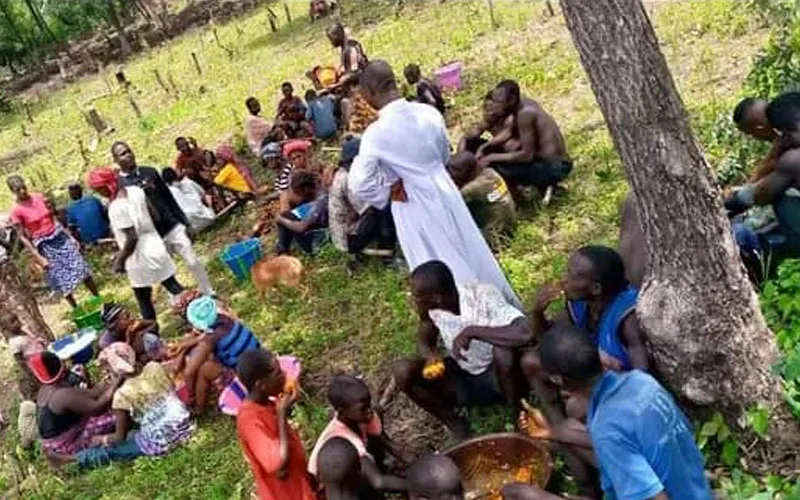 Credit: Fr. Michael Baimba Conteh
Credit: Fr. Michael Baimba Conteh


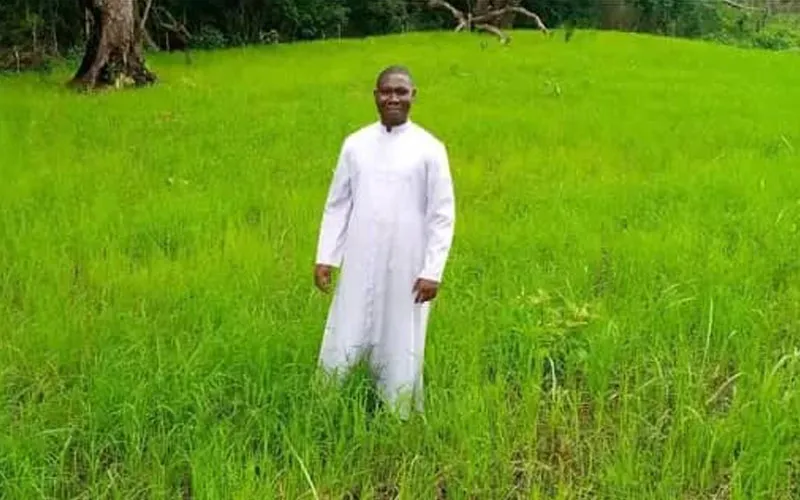
 Credit: Fr. Michael Baimba Conteh
Credit: Fr. Michael Baimba Conteh
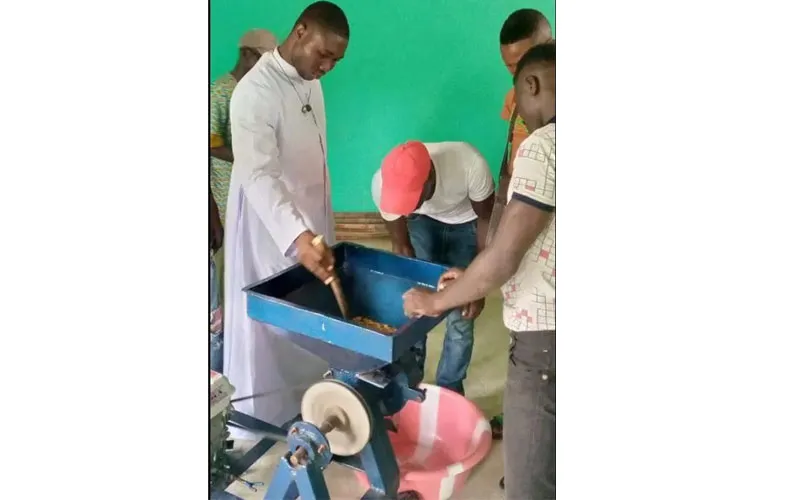 Credit: Fr. Michael Baimba Conteh
Credit: Fr. Michael Baimba Conteh Credit: Fr. Michael Baimba Conteh
Credit: Fr. Michael Baimba Conteh Credit: Fr. Michael Baimba Conteh
Credit: Fr. Michael Baimba Conteh


